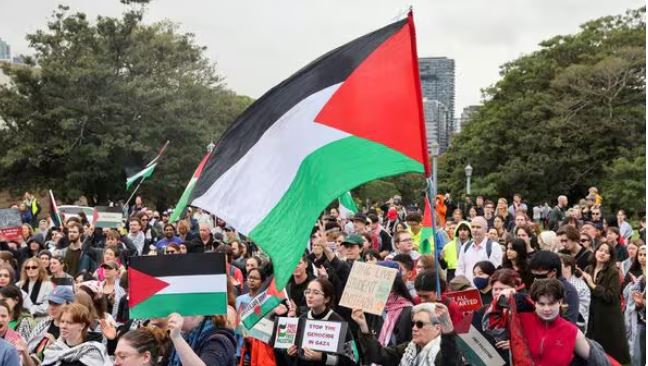mong the banks, law firms and luxury hotels of central London, a piece of Palestine is rising. Born in an adjacent falafel joint, Palestine House has spread over five floors. Each depicts a different period of Palestinian history. The walls of one recreate the wooden latticework of a traditional inner courtyard; another, the smashed rubble of Gaza. Palestinian flags and banners protesting against genocide decorate the walls and pavement outside. By the end of the year Osama Qashoo, its founder, plans to open a journalists’ club, a radio station, a startup hub, an exhibition hall and a cultural salon in the building. “Each bomb Israel drops on Gaza is an amplifier,” says Mr Qashoo, an exile from the West Bank city of Nablus: “We are the carriers making sure Palestine’s story lives.”Mr Qashoo is part of a new generation of activists among Palestinians whose sense of identity had been waning.
They have been mobilised by the horrifying bloodshed and destruction in Gaza. They are dismissive of an ageing and discredited Palestinian leadership and seek new ways to pursue their century-long struggle. Mr Qashoo’s vision of the route to a Palestinian state is a peaceful one. Others sound more resigned to bloodshed. “Forget the dumb doves,” says Zeina Hashem Beck, a young poet at a recital in support of Gaza in New York. Will the war in Gaza galvanise young Palestinians to new forms of struggle, or prompt further violence in their quest for a state?
The horrors of the past year are manifold. Nearly 42,000 have been killed in Gaza. Around 70% of Gaza’s housing stock has been destroyed. Many feel that the shock is already as awful as the nakba (catastrophe) of 1948, when Israel was formed and around 15,000 Palestinians were killed and some 750,000 were driven from their homes or fled. Others compare it to the naksa (setback) of 1967, when Israel seized the West Bank and east Jerusalem. Measured by the numbers killed and the length of the conflict, the past year has been the worst in the Palestinians’ recent history.

